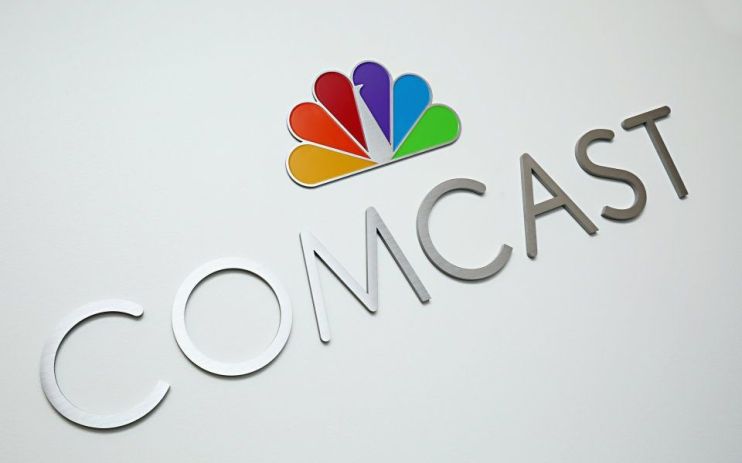Comcast hikes dividend as broadband boost pushes up revenue

Comcast today said it had ramped up its dividend after reporting a rise in both revenue and profit in the fourth quarter.
The US media titan posted revenue of $28.4bn (£21.6bn), up two per cent on the same period last year, while earnings before interest, tax, depreciation and amortisation rose three per cent to $8.4bn.
The revenue growth was boosted by a strong performance by Sky, which Comcast bought for $39bn in 2018 after a fierce bidding war with Rupert Murdoch’s Fox. Sky pulled in quarterly revenue of $5bn — ahead of analysts’ estimates.
Comcast also beat expectations for high-speed internet customers, with 442,000 net additions. However, the rise of streaming continued to take its toll on the firm’s cable TV subscribers, reporting a loss of 149,000 video customers.
However, the focus on broadband appears to be paying off for the media group, which hailed “another great year”.
The company announced it had increased its dividend by 10 per cent to 0.92 cents per share — its 12th consecutive annual increase. Shares in Comcast were up more than two per cent in pre-market trading.
Comcast’s NBC Universal division, which includes NBC Entertainment and Universal Pictures, reported a 2.6 per cent decline in revenue to $9.2bn in the fourth quarter.
Revenue at the filmed entertainment unit slumped 21 per cent to $1.6bn, which Comcast blamed on lower take from cinemas and the disastrous performance of Cats.
The figures come as Comcast prepares to wade into the streaming wars with the launch of Peacock in April. The streaming platform will offer access to current NBC series and a back catalogue of shows such as 30 Rock and Saturday Night Live, as well as films including Jaws and Jurassic Park.
Comcast is also set to launch a joint news channel with NBC and Sky News as it looks to unseat CNN from its dominant position in international TV news.
The channel, called NBC Sky World News, will have 10 worldwide bureaus and reach 130m households, NBC News chairman Andy Lack told the Financial Times.